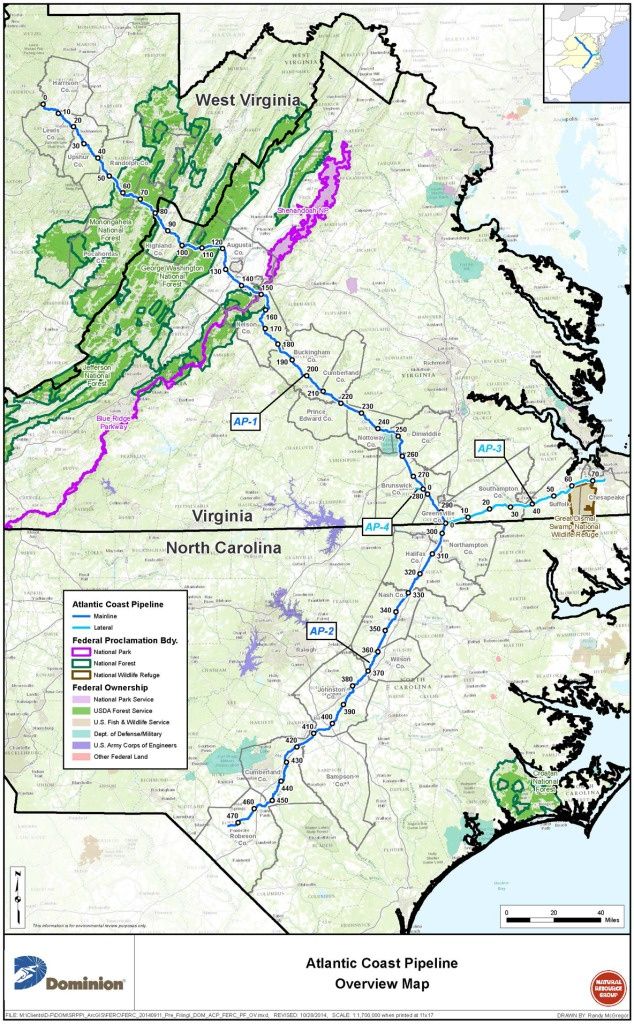The Atlantic Coast Pipeline (ACP) has filed two eminent-domain lawsuits in Nelson County, Virginia, against landowners that are in the way of a planned pipeline.
RELATED:
In Defense of Land and Water, From Standing Rock to Guatemala
The 600 miles ACP was proposed by Dominion Transmission to export gas into India and Japan and will cross through Virginia, West Virginia and North Carolina. It was initially approved during Obama's administration in 2013 and has since then faced protest and criticism from landowners and environmental activists especially in Virginia.
One of the lawsuits was filed against the Wintergreen Property Owners Association (WPOA) in Nelson County, a non-profit membership corporation intending to maintain and manage roads, parks, open spaces and other common areas in Virginia. The ACP wants easements for 3 hectares of public land in their territory, and they have opposed until now.
WAPO has said to agree to a “formal mediated process” and desist on a legal battle since they believe the court would side with the pipeline company.
The other lawsuit was filed against Fenton Family Holdings, the family company of Lilia and Will Fenton, who have opposed the pipeline construction plans for four years. The couple owns a small “Bavarian-style” Inn on the pipeline's intended path, and the owners have rejected the Dominion Transmission easement and compensation offers.
“We have done everything conceivable to make them aware of our situation, explain our worries about the situation and what we’re looking at economically because we don’t want to be forced out of business by their big business,” said Will.

Now, the legal process could allow the construction of the ACP to begin even before a court rules what a “just compensation” is for the Fenton family, due to “immediate possession” legal figure.
Virginia laws allow the eminent domain appeal in cases of construction, but the ACP has signed agreements with about 80 percent of landowners on its route. Now, the ACP has filed eminent-domain lawsuits against about 100 landowners that still haven't signed easement agreements.
“It’s kind of like being a fish on a fish hook,” Will said. “How long ‘til you get exhausted and let them reel you in, as far as negotiations? That’s where we’re at.”
The eminent-domain lawsuits come at the same time environmental groups are challenging the ACP on legal grounds. On behalf of 11 environmental conservation groups, the Southern Environmental Law Center and the Appalachian Mountain Advocates last month filed a lawsuit against the Federal Energy Regulatory Commission (FERC) decision to approve of the pipeline.